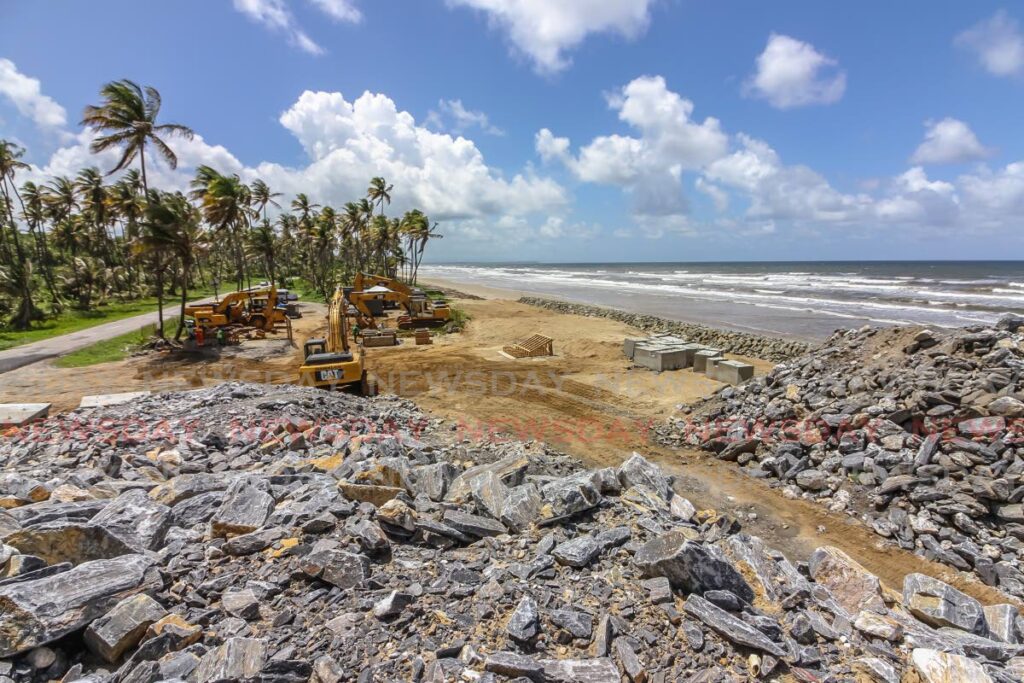The impact of climate change on our health – A Caribbean perspective

Dr Chris Oura and Dr Sandeep Maharaj
Faculty of Medical Sciences, UWI
Due to its size and location, the Caribbean is particularly susceptible to the effects of climate change.
As emerging nations with economies based on climatically vulnerable industries like tourism, agriculture, and fishing, Caribbean nations are particularly affected by the continued rise in sea levels, changes in rain patterns and temperatures, and intensifying natural disasters.
The significant impact on human health from climate change in the Caribbean is projected to continue and worsen both via direct pathways (storms, floods, droughts, and heatwaves) as well as indirectly through changes in water quality, air quality, food security and vector-borne disease patterns. According to the Intergovernmental Panel on Climate Change (IPCC), the global temperature must be kept to 1.5°C to avoid catastrophic health effects and millions of fatalities brought on by climate change. By 2030, it is anticipated that the direct health harm from climate change will range from US$2 to US$4 billion annually. The areas least equipped to manage, plan and respond to the health effects of climate change will be those with limited health infrastructure, like many Caribbean countries.

The impact of climate change on human life and health can take many different forms. It puts at risk the fundamental components of human health, such as clean air, safe drinking water, nutritious food supply, and safe shelter, aggravating already-existing health disparities within and between populations. The disruption of food systems, rise in diseases that pass from animals to humans (zoonoses) and food-water- and vector-borne diseases, as well as mental health problems are all significant effects of climate change on health.
Additionally, many of the social factors that influence health, such as access to healthcare, equality, and livelihoods, are being weakened by climate change. The most vulnerable and disadvantaged people, such as women, children, ethnic minorities, poor communities, migrants or displaced people, elderly populations, and those with underlying health issues, are disproportionately affected by these climate sensitive health concerns.

The extent to which transformative action is taken now to reduce emissions and stop the crossing of potentially calamitous temperature thresholds and irreversible tipping points will increasingly determine the long-term results. Increasing amounts of research point to the possibility that increasing public support for the efforts required to reduce emissions must be accomplished by informing people about the health impacts associated with climate change, as well as the means to address them. Consequently, health professionals have a unique chance to identify themselves as credible champions for global efforts to cut emissions and protect people from the dangers of climate change.
Even though most Caribbean institutions and universities conduct climate change research, there is a lack of emphasis on the health impacts of climate change. The Caribbean has fewer articles published on climate and health than other regions of the world and very few of these articles focus on national health mitigation and adaption implementation. Despite the unique vulnerability of the Caribbean to storms, floods and drought, there is little research published on the need for public health preparedness and response to these events. Also, while it is understood that the Caribbean has unique threats to the environmental determinants of health (eg food, water and sanitation), little research exists describing the current or future impacts from climate change on these basic human systems. There is also limited evidence of the availability of national data facilitating a better understanding of the relationships between climate and health.
To move the climate and health agenda forward in the Caribbean, networks should be formed to engage the research community, civil society, and ministries to bolster climate and health practice. Increased emphasis should be placed on improving public health and health systems preparedness and response to the effects of climate change. National systems need to be put in place to get the public more involved in climate and health, supported by more awareness research. Finally, developing and training a climate and health workforce, and increasing external collaboration and financing, are all necessary elements to increase levels of implementation research in climate change and health across the Caribbean.
UWI ON THE GROUND
A university must be centred in the community, leading on the key issues of the day. Accordingly, the University of the West Indies, (UWI) St Augustine, offers this public service series where its leading scientists and researchers will address food security, climate and disaster challenges – Series 1.

Today, we consider that the environment is not the only thing negatively impacted by climate change. So is our health, as two leading medical doctors and researchers illustrate in this joint offering: Winner of the UWI Vice Chancellor award for research, Dr Chris Oura, is the Professor of Veterinary Virology at the School of Veterinary Medicine who led a large European Union funded project promoting "One Health" across the Caribbean region - He is a member of the UWI covid19 taskforce and is currently leading a climate change and health leaders fellowship programme. Dr Sandeep B. Maharaj is a lecturer in Pharmacy Administration and Associate Dean. He is also the Senior Global Outreach Fellow at the Planetary Health Alliance based at the Harvard T Chan School of Public Health. He is the principal investigator for the funded project, Caribbean Climate Cares and part of a research team led by Imperial College on Building Global Dialogues for Climate Change and Mental Health.
Professor Rose-Marie Belle Antoine
Principal, UWI, St Augustine

Comments
"The impact of climate change on our health – A Caribbean perspective"